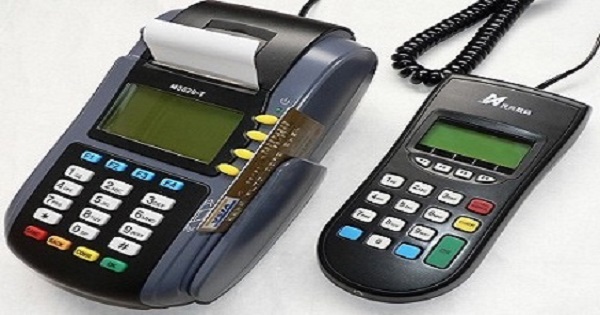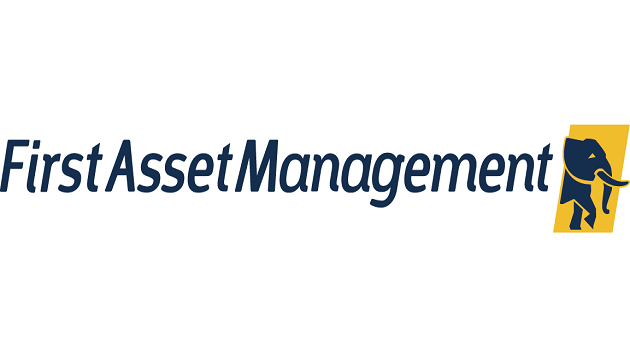E-Financial
Super Agents, Agents Locked in PoS Chargeback Confusion

Super Agents and agents under them in the Central Bank of Nigeria (CBN) financial inclusion initiative are today locked in Point of Sale chargeback issues, which has resulted in some agents going out of business, Nigeria CommunicationsWeek has learnt.
One of the cases involves Innovectives a super- agent in Shared Agent Network Expansion Facilities (SANEF) programme and Ecosystems Hybrid Network, where Innovectives according Ecosystem have under paid her and agents under its channel to a turn of N15 million arising from PoS chargeback between January and July this year.
Fasasi Sarafadeen Atanda, managing director, Ecosystem Hybrid Network, said the issue has lingered for this long because there is no dispute mechanism in settlement issues between providers and agents.
“The issues around PoS chargeback are beyond debit of customers as there is no complaint mechanism in place for financial inclusion services.
“In a formal banking system, there is complaint mechanism where customers are allowed to lodge complaint and tracking number given to them; if such issue were not resolved the customer can escalate it to CBN with the tracking number.
“For Agency banking, which is informal and still financial service the mechanism of formal should not be used in resolving complaints as the scenario are different.
Responding to the claims, Emmanuel Agha, chief executive officer, Innovectives, said that what his company owes Ecosystem is N8.6million of which N2million has been paid.
“The way PoS chargeback is structured, you have to wait for the banks to pay you and this takes a long time for it to be resolved,” he said.
He added that because other agents are involved in the issues his company has started paying Ecosystem without waiting for banks to refund her, noting that the issue of PoS chargeback with agents is not peculiar to his company but an industry issue that needs to be address.
Explaining PoS chargeback and its delay as frustrating for PoS as a payment channel, Tosin Eniolorunda, chief executive officer, TeamApt, said: “chargeback is when a customer buys goods or service at a point of sale terminal and was debited but the PoS did not print receipt showing a successful transaction, because it did not print a receipt, the merchant will refuse to give the customer the goods he requested for, while your account have been debited. In this situation, you will have to go to your own bank which is not the bank of your merchant and file a claim of your money that is called chargeback.
“The problem is resolved today by your bank logging it against the merchant and the merchant bank needs to investigate if that claim is correct or not, if it is true he did not give the customer the value, he will attest to the bank that it is true and for his bank to return the money to the customer. If it is not true the bank will request for evidence that the merchant actually gave the customer the value.
“The evidence that is accepted today in the industry is a paper receipt. That paper that was printed from the PoS, you need to go and get it, scan it and attest to the bank you gave that customer his value for the money not to be refunded.
“Imagine a very larger merchant that prints a lot of receipts you need to be storing PoS receipts and that receipt fads away with time.
“This challenge is why merchants are crying about chargebacks because they cannot respond appropriately and have only three days to do that before they will be charged. The way to solve it is to prevent the merchants from needing to present receipt which is through e-journal,” he explained.
Electronic journal is ability of PoS to keep an evidence of all its transactions, when it keeps all those evidences; it sends them to a remote server at the bank of the merchant.
“POS has the capacity to do electronic journal. A regulatory push for PTSPs to implement e-journal will go a long way to addressing this problem. If regulator mandates that operators should implement e-journal in the next two months it will be done”.
E-Financial
NIBSS, Others Flag 13,417 Nigerian Fraudsters on Person of Interest Portal

At least 13,417 individuals linked to fraudulent activities in Nigeria’s financial system have been captured on the Person of Interest Portal jointly developed by the Nigeria Inter Bank Settlement System (NIBSS) in collaboration with the Central Bank of Nigeria (CBN), security agencies and other stakeholders.

Premier Oiwoh, managing director of NIBSS, disclosed this while speaking on ongoing efforts to curb fraud in the payments ecosystem, noting that the portal which contains names and photographs of suspects has been actively used by law enforcement agencies since it began capturing data from 2019.
Oiwoh, while noting that fraud management remains a core responsibility of NIBSS, noted that the number of reported fraud cases has declined over the past five years, the value of losses remains a key concern for regulators and operators.
According to him, actual fraud losses stood at about N17.67 billion in 2023 before rising sharply to N52.26 billion in 2024, mainly due to a single incident involving N31.1 billion by one entity. He noted, however, that losses dropped significantly in 2025, reflecting tighter controls and improved collaboration across the industry.
He explained that Lagos continues to account for the highest concentration of fraud cases due to its position as the country’s commercial hub, while Abuja has also recorded a notable rise, with other states still featuring in reported incidents.
By transaction channel, Oiwoh said fraud is most prevalent in e-commerce and internet banking, followed by POS, mobile and web platforms.
He identified social engineering as the most common technique used by fraudsters, warning that insider abuse now poses the greatest threat to the system.
“Insider involvement is high, and recent investigations have confirmed this. Many of the fraud cases we are seeing today involve insiders, including former bankers,” he stated, noting that coordinated industry action has yielded results, and that joint efforts last year alone prevented losses of about N20 billion that could have been lost to fraud.
He raised concern over non-reporting of fraud incidents revealing that fraud reporting declined by about 34 per cent in the last quarter of 2025.
He warned that failure to report allows perpetrators to move freely between institutions undetected.
“In several cases investigated last year, individuals involved in fraud simply moved to other institutions because incidents were not reported. Non-reporting is unacceptable,” he said.
He said NIBSS, working with the CBN, the Nigerian Financial Intelligence Unit, and security agencies, has integrated centralised data systems, including industry watch lists, politically exposed persons databases, and customer account repositories, into the Person of Interest Portal to strengthen monitoring, identity management, and fraud prevention.
Credit… Leadership
E-Financial
CBN Prepares Fresh Debit Card Rules to Improve ATM Services

Central Bank of Nigeria (CBN) is to introduce new rules to improve how debit cards and Automated Teller Machines (ATMs) work in Nigeria, according to Olayemi Cardoso, governor of the apex bank.

Cardoso, made this known through Fatai Karim, his special adviser, at an event held over the weekend.
According to him, the new rules are meant to solve ongoing problems with cash withdrawals and to restore public trust in electronic payment systems.
The CBN explained that banks will now be required to issue debit cards based on the number of ATMs they have installed. This means a bank should not issue too many cards if it does not have enough ATMs to support them.
The policy is expected to reduce long queues at ATMs, frequent machine breakdowns, and uneven access to cash across the country.
The CBN noted that repeated ATM failures and cash shortages have made many Nigerians lose confidence in digital banking, even though electronic transactions are increasing.
The Governor said the new policy will soon be introduced to clean up the system and ensure banks properly balance the number of debit cards they issue with the ATMs they operate.
E-Financial
First Asset Management Receives Upgraded Ratings from Agusto &Co and DataPro

First Asset Management, a subsidiary of FirstHoldCo Plc has recorded a significant milestone as its rating was upgraded to ‘AA’ from ‘AA-’ by DataPro, reflecting the firm’s strong fundamentals and sustained resilience in Nigeria’s Asset management landscape.

The rating upgrade, issued in DataPro’s latest rating report, underscores First Asset Management’s diversified income base, high-quality investment portfolio, and experienced team, all of which continue to support the firm’s long-term stability, sound governance framework, and consistent performance.
The improved rating highlights the organisation’s ability to maintain strong operational fundamentals while effectively navigating market cycles. It further reflects First Asset Management’s disciplined investment philosophy, prudent risk management practices, and commitment to delivering value-driven solutions to its clients.
Speaking on the upgrade, Ike Onyia, Managing Director/CEO of First Asset Management, stated, “We are pleased with DataPro’s decision to upgrade our rating to ‘AA’. This recognition affirms the depth of our investment expertise, and the consistency of our governance and risk management processes. We remain focused on sustaining strong performance while delivering reliable investment outcomes for our clients.”
In a related development, Agusto & Co. has upgraded the rating of the First Asset Money Market Fund to ‘Aa-(f)’ from ‘A+(f)’, further reinforcing the strength of First Asset Management’s product offering.
According to Agusto & Co., the upgraded rating reflects the fund’s consistent low exposure to interest rates and liquidity risks, as well as the fund manager’s commendable professionalism and prudent investment approach. The rating affirms First Asset Money Market Fund’s position as a formidable investment vehicle for capital preservation and steady income generation.
First Asset Management continues to maintain a strong position within Nigeria’s asset management industry, supported by its disciplined investment framework, experienced investment professionals, and a growing suite of products designed to meet the evolving needs of retail and institutional investors.
DataPro and Agusto & Co. are both recognized leaders in ratings and investment research in Nigeria, with extensive experience providing independent assessments across multiple sectors. Their ratings are widely accepted as benchmarks for evaluating financial strength, risk management, and business sustainability.
First Asset Management is a leading Nigerian investment manager within the FirstHoldCo Group. The firm has evolved into a full service investment platform, offering integrated wealth and portfolio solutions across the Group.
First Asset Management manages diversified strategies spanning fixed income, equities, alternatives, passive and quantitative products, in multiple currencies for a variety of individual, intermediary and institutional clients.

 Telecom3 days ago
Telecom3 days agoNew Investment Fund Targets Acceleration of Emerging Technology in Nigeria

 General News2 days ago
General News2 days agoPalmPay User Shares Experience on Fintech Apps to Trust in Nigeria

 News2 days ago
News2 days agoStakeholders Demand Stronger Governance and Infrastructure to Drive Tech Adoption @ Lagos AI Summit

 General News2 days ago
General News2 days agoNigerians Target Self-Improvement, Business Startups in 2026 Google Data

 News2 days ago
News2 days ago35 Million Nigerians Face Acute Hunger in 2026, UN Warns

 General News2 days ago
General News2 days agoHow Inside Jobs and Policy Shocks Trigger Nigeria’s Rising Loan Crisis

 E-Financial10 hours ago
E-Financial10 hours agoFirst Asset Management Receives Upgraded Ratings from Agusto &Co and DataPro

 General News10 hours ago
General News10 hours agoNigeria Treats Religious Violence as Attack on State – NSA Ribadu






















